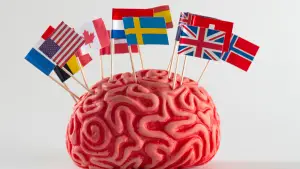Ramadan, the holy month of fasting, devotion, and bonding, has a special place at the heart of every Muslim community all around the world.
From the soulful call to prayer at dawn to the communal Iftar meals shared with family and neighbors at dusk. Ramadan embodies spiritual discipline and social connection.
However, in today’s digital world, technology has become an integral part of daily life. It’s transforming how we observe and experience activities in this holy month.
In Nigeria, a country whose half of its population belongs to the Islamic faith, this transformation is especially visible. Mobile apps now remind Muslims of prayer times, digital platforms facilitate online Tafseer (Qur’anic exegesis), and social media connects fasting Muslims across the globe.
Yet, as much as technology offers convenience, it also presents challenges—sometimes diminishing the essence of Ramadan’s communal spirit and spiritual discipline.
To ensure that technology enhances, rather than disrupts, the traditions of Ramadan, it is essential to find a balance. One that embraces modern tools while preserving the values of faith, family, and community. And this is exactly what this essay strives to achieve.

The Role of Technology in Modern Ramadan Practices
1. Prayers and Spiritual Growth
One of the most significant ways technology has influenced Ramadan is through prayer and spiritual growth.
Mobile applications like Muslim Pro, Al-Qur’an (Tafsir & MP3), and MyDuaa now help Muslims keep track of their prayer times, recite Qur’anic verses from the screen, and listen to supplications. These apps ensure that even in the midst of busy schedules, Nigerian Muslims can stay connected to their faith.
However, while these tools serve as helpful reminders, they should not replace personal engagement with worship. The ease of listening to pre-recorded Qur’anic recitations, for example, has led some people to passively consume religious content rather than actively engage with the words of God. Moreover, excessive screen time during Taraweeh (A special kind of prayer that only happens during Ramadan) can diminish the depth of one’s connection with Allah.
To counter this, Muslims can use technology as a supplement rather than a substitute for physical prayers. Instead of relying solely on digital recitations, individuals should make time for personal Qur’an reading and memorization. Notifications from apps can be turned off during prayer times to minimize distractions, ensuring deeper focus and sincerity in worship.
Additionally, while virtual Tafseer sessions are beneficial, attending in-person Tafseer gatherings fosters a stronger communal spirit and allows for more interactive learning.
2. Charity (Zakat and Sadaqah)
Ramadan is a time of heightened charity, and technology has revolutionized the way Nigerians give Zakat (compulsory almsgiving) and Sadaqah (voluntary charity). Online donation platforms like Jaiz Charity and instant bank transfers allow Muslims to contribute to causes with just a few clicks. Social media has also played a crucial role in amplifying fundraising campaigns, making it easier for people to support both local and international charitable initiatives.
Despite these advantages, digital charity can sometimes feel impersonal. In the past, Zakat was traditionally given directly by hand, allowing the giver to witness the impact of their generosity firsthand. Now, with the ease of digital transfers, this personal connection is often lost. Additionally, the rise of online scams targeting well-meaning donors has made it essential to verify the authenticity of digital charity organizations before making donations.
To maintain the spirit of personal giving, Nigerian Muslims can balance online and offline charity. While digital transactions are efficient, taking the time to personally deliver charity to the needy—whether through food packages or direct assistance—preserves the emotional and spiritual fulfillment of giving. Families should also involve their children in acts of charity, allowing them to experience the joy of helping others tangibly.
3. Tafseer and Islamic Learning
Traditionally, Tafseer (Qur’anic interpretation) sessions were held in mosques, providing an opportunity for Muslims to gather, ask questions, and engage in discussions with scholars. Today, digital platforms such as YouTube, Zoom, and Facebook Live have expanded access to Islamic knowledge, allowing thousands of people to benefit from lectures by renowned scholars worldwide. In Nigeria, respected figures like Sheikh Isa Ali Ibrahim Panatami and Sheikh Ahmad Abubakar Gini have built large online followings, enabling more people to access authentic Islamic teachings.
However, while these online platforms provide valuable knowledge, they also come with risks. The ease of access means that misinformation can spread quickly, especially from unverified sources. Additionally, engaging with Tafseer through digital screens can sometimes feel isolating compared to the traditional experience of gathering in a mosque, where discussions and personal interactions enrich learning.
To ensure that technology enhances, rather than diminishes, the Tafseer experience, it is important for Muslims to cross-check the credibility of online scholars and sources before following their teachings. Families can also make Tafseer sessions a communal activity by watching lectures together and discussing key takeaways afterward. Furthermore, attending at least some in-person Tafseer gatherings can help maintain the sense of connection and shared learning that defines Ramadan.
4. Food Culture and Iftar Gatherings
Food is an integral part of Ramadan anywhere in the world. In Nigeria, especially the North, traditional dishes like Kosai, Zobk, Fura da Nunu, Masa/Waina, rich rice dishes, and other fries form the essence of Iftar meals.
Over the years, technology has significantly influenced how people prepare and share these meals. Social media platforms like YouTube, Instagram, and TikTok have popularized online food classes and cooking vlogs, introducing new recipes and inspiring more creativity in Nigerian kitchens.
While these platforms offer much-needed cooking tips and exposure to different cuisines, they have also contributed to growing peer pressure, particularly among women.
Many Nigerian women now feel compelled to follow trending food styles showcased by influencers and food bloggers, even when these dishes are expensive or impractical for their households. The desire to impress family members or maintain social status often leads to financial strain.
For instance, in recent years, meals like loaded “Ramadan platters” featuring exotic dishes such as seafood boils, shawarma platters, and elaborate Arabic-inspired spread have gained traction on Nigerian social media.
These meals, often seen in vlogs by influencers, may look appealing but require costly ingredients that many women may not ordinarily afford. The pressure to keep up with such trends can overshadow the essence of Ramadan, which prioritizes moderation and community sharing over extravagance.
Additionally, online food trends have shifted focus away from traditional Nigerian meals, making some women feel their simpler Iftar dishes are inadequate. Instead of the classic tuwo and miyan kuka, some now struggle to prepare “Instagram-worthy” meals, which can lead to stress and unnecessary financial burdens.
To counter these pressures, Nigerian families need to embrace a balanced approach to food culture during Ramadan. While exploring new recipes is not inherently bad, it is important to cook within one’s means and focus on the spirit of sharing rather than competition.
Women can use technology positively by joining online communities that encourage budget-friendly Ramadan meals and promote traditional Nigerian dishes. Moreover, social media can be a platform for highlighting the beauty of simple, locally sourced meals, encouraging authenticity rather than extravagant trends.
Ultimately, Ramadan is about spiritual reflection and community, not about who can prepare the most elaborate Iftar. By using technology wisely, Nigerian Muslims can preserve the warmth and simplicity that make Ramadan truly special.
5. Child Training and Family Bonding
Ramadan serves as an opportunity for families to instill religious values in their children. Traditionally, children actively participated in mosque activities, observed their first fasts with family support, and learned about patience and self-discipline through real-life experiences.
However, with the rise of technology, many children now spend Ramadan engaging with Islamic cartoons, religious games, and online learning platforms. While these tools provide educational benefits, excessive screen time can reduce their engagement with real-world religious practices.
To ensure that technology supports rather than replaces hands-on learning, parents can create a balanced Ramadan schedule that includes both digital and physical activities. Children can be encouraged to participate in meal preparation, distribute food to the less privileged, and join family prayers at the mosque.
Limiting non-essential screen time and replacing it with real-life religious experiences will help instill a deeper appreciation of Ramadan’s values.
Conclusion: Striking the Right Balance
Technology is neither inherently good nor bad—it depends on how it is used. Ramadan in Nigeria can remain spiritually enriching and community-driven if a balance is struck between modern convenience and traditional values.
By using technology mindfully—whether through prayer apps, online charity platforms, virtual Tafseer, or digital recipe-sharing—Muslims can enhance their Ramadan experience without losing the essence of faith, family, and community.
The goal is not to reject technology but to integrate it in a way that aligns with the spiritual and communal significance of the holy month.
As Ramadan approaches, Nigerian Muslims can make conscious efforts to ensure that technology serves them rather than distracts them.
By maintaining personal engagement in worship, fostering real-life connections, and using digital tools with intention, they can preserve the warmth and spirituality that define this sacred month.
May God grant us a fulfilling Ramadan, full of faith, compassion, and meaningful connections. Ameen.







